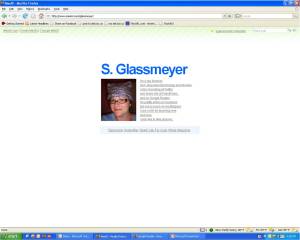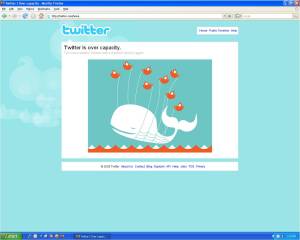A confluence of circumstances and events has got me to thinking lately about what I do, how I do it, all that good stuff. A summary (and you can almost just skip this part really because it’s just about borderline navel gazing. I put a graph at the end that summarizes the summary) :
- Due to a “greening initiative” and tight budgets, my law school has gone as paperless as is humanly possible. The greatest effect I’ve felt from this decision is that I spent many hours this month training faculty and faculty assistants on TWEN. It was a very eye opening experience, to say the least. Now, I don’t expect everyone to have advanced computer skills, but I was shocked to find that in this day and age, there are people amazed that you can drag and drop files around folders in your computer.
- Classes started and I’m teaching four sections of legal research this fall. During some pre-class discussions, I was pleasantly surprised to find that some of my students were trying Google Chrome and were actually discussing it’s pluses and minuses. On the other hand, the intricacies of TWEN seem too much for some of them to handle. Sure they can do Facebook, but so what?
- When discussing Twitter with my boss, she wanted to know if I thought anyone would use it if we set up a library account. And for that matter, is anyone reading our library blog? To which I intelligently responded, “Uhhhh…..maybe?” (Hey, I had just got done teaching three of my four sections – I was fried!) Also this week my brother and sister (non-library civilians) both joined Twitter. Aside from them, most everyone I “talk to” on Twitter is a librarian or in the tech industry. Same thing with my blog contacts, facebook friends, etc. I have no idea about the uses of these services by “normal people.”
- I’ve been starting to keep track of “Vendor 2.0” initiatives, such as the the ones implemented by HeinOnline. Librarians are geeking out about them, but is anyone else?
- I just completed my dossier for my university’s promotion and tenure process, so I’ve gotten to take a good hard look at everything I’ve done over the past year. And I’m starting to see some intriguing job ads. So I’m starting to think about where I want to go next, what I need to do to get there, have I just wasted the past year, what projects should I spend my energy on next year, etc.
Anyway, in case that was confusing, I made a graph. I make lots of graphs. [/Lisa Simpson]
So, it occurred to me that one way to clear up some of this confusion in my life was to find some hard data about what law students use and want when it comes to technology. I initially thought that I’d ask my sections of LR informally, and then I thought I’d ask the LR other sections at UK, and then I thought, “Well, heck, why don’t I just ask every law student I can get my hands on around the country?”
That is just a first, very very rough draft. Please don’t share it with law students just yet. But, Gentle Reader, if you have any suggestions, I would be more than willing to hear them – content, applications I’m missing, typos – whatever ya got. I’m not sure about any future plans for the data other than I just need some questions answered for my own sanity. If I get decent enough results I may try and write an academic paper or get a presentation out of it. If not, I’ll definitely make the info available here and to anyone who asks. Library science is about sharing, yo.
As for the technical aspects of that survey, I used the forms feature on Google Docs and I have it embedded in a Google Sites page. Advantages of this:
- Free cost
- If I’m reading things right, up to 5000 responses (although I would wet myself if I got that many responses)
- Easy to create and use
- Google sites URL looks cleaner than the survey monkey or zoombafoo (or whatever it is) one.
Disadvantages:
- I can’t seem to keep my questions from migrating around the page. The help group suggested that I edit in IE, which I grudgingly did, but that didn’t seem to help. I may try re-writing the whole thing in IE.
Okay. Again, I just came up with this idea four hours ago, so it’s still really rough. But I’m definitely open to any constructive criticism you may have. Also, if you know of someone else who may have this type of data set, let me know. I did a quick and dirty check of law journal articles, but found nothing.
I’m hoping to get this revised and tech aspects done with so I can start virally spreading it around the country mid-October. So, drop a comment here or e-mail me if you have any suggestions. Thanks.
Filed under: survey, web 2.0 | Tagged: survey, web 2.0 | 6 Comments »








